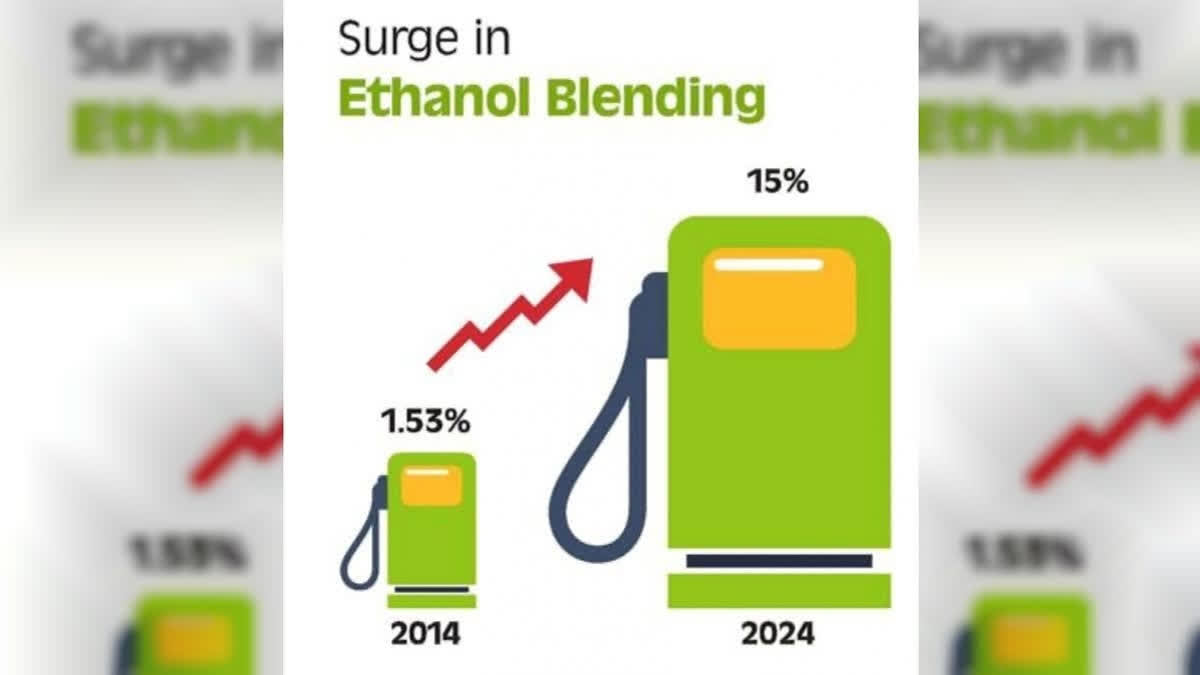New Delhi: The Centre has implemented several measures to ensure fair fuel pricing and promote sustainable energy practices, according to a written reply by Minister of State for Petroleum and Natural Gas Suresh Gopi in the Lok Sabha today.
These initiatives have led to significant price reductions in petrol and diesel, enhanced ethanol blending in petrol, and notable benefits for farmers and the environment.
Fuel Price Reductions for Consumers
The government has successfully reduced petrol and diesel prices over the past three years. The prices in Delhi dropped from ₹110.04 and ₹98.42 per litre in November 2021 to ₹94.77 and ₹87.67 per litre, respectively, as of November 18, 2024. This was achieved through a reduction in Central Excise duty by ₹13 per litre for petrol and ₹16 per litre for diesel, implemented in two phases during November 2021 and May 2022.
Many state governments further eased the burden by cutting VAT rates, while Oil Marketing Companies (OMCs) reduced retail prices by ₹2 per litre in March 2024. Additionally, Public Sector Undertaking (PSU) OMCs introduced intra-state freight rationalization, ensuring uniform fuel prices within states. This has particularly benefitted consumers in remote areas by narrowing price differences within states.
Ethanol Blending Programme Gains Momentum
A cornerstone of the government’s strategy to reduce dependence on imported crude oil is the Ethanol Blended Petrol (EBP) Programme. Under the National Policy on Biofuels-2018, the government advanced the target for achieving 20% ethanol blending from 2025-26 to 2030. This initiative has already made significant progress, with ethanol blending increasing from 10% in June 2022 to 14.6% in the Ethanol Supply Year (ESY) 2023-24.
Over the past decade, ethanol blending has resulted in foreign exchange savings of approximately ₹1,08,655 crore, crude oil substitution of 185 lakh metric tonnes, and a net reduction of 557 lakh metric tonnes of CO2 emissions. It has also supported sugar mills in managing surplus inventory and facilitated payments of around ₹92,409 crore to sugarcane farmers.
Economic and Environmental Impact
The programme has proven to be a win-win for the economy and the environment. The anticipated 20% ethanol blending target is expected to generate annual payments of over ₹35,000 crore to farmers, offering a steady income stream. Meanwhile, the environmental benefits include substantial reductions in carbon emissions, aligning with India’s sustainability goals.
To ensure consistent progress, the government has introduced measures such as expanding ethanol feedstock, implementing an administered price mechanism, reducing GST on ethanol to 5%, and launching Ethanol Interest Subvention Schemes (EISS) to boost production.
Suresh Gopi emphasised that these initiatives collectively address the dual challenges of affordability and sustainability, reinforcing India’s commitment to a cleaner and more inclusive energy future.



